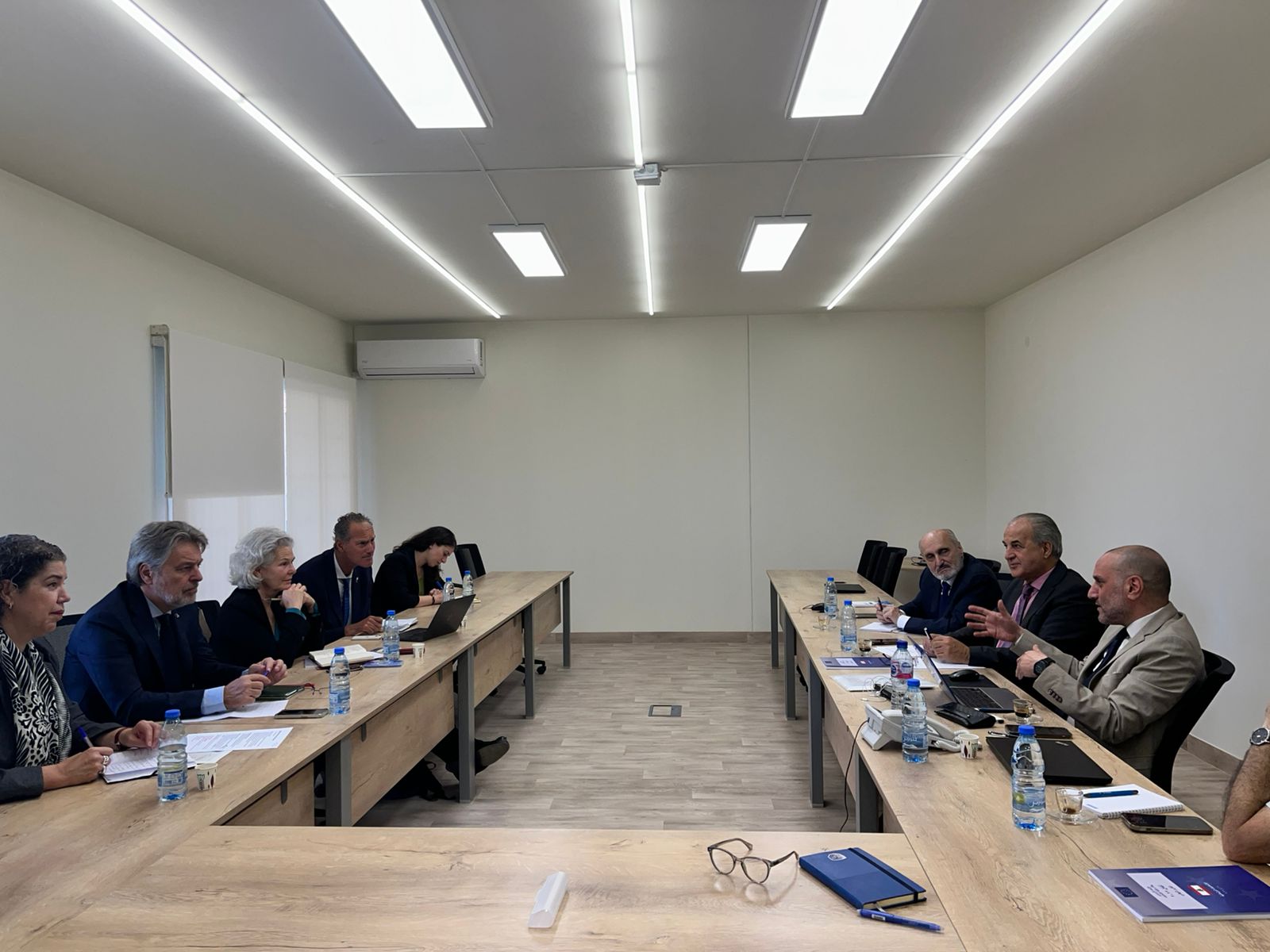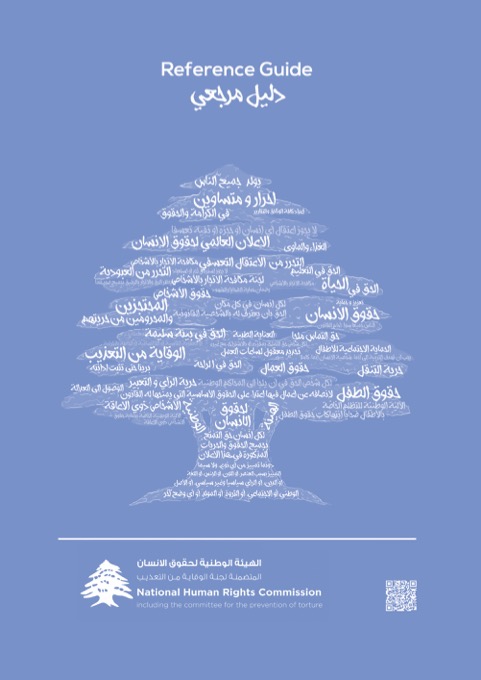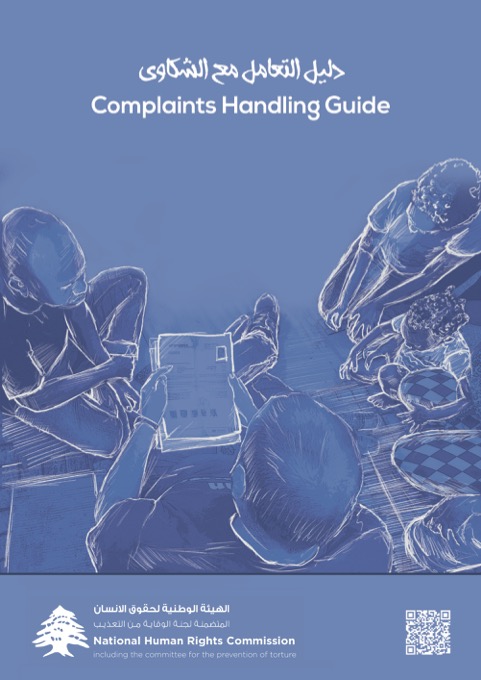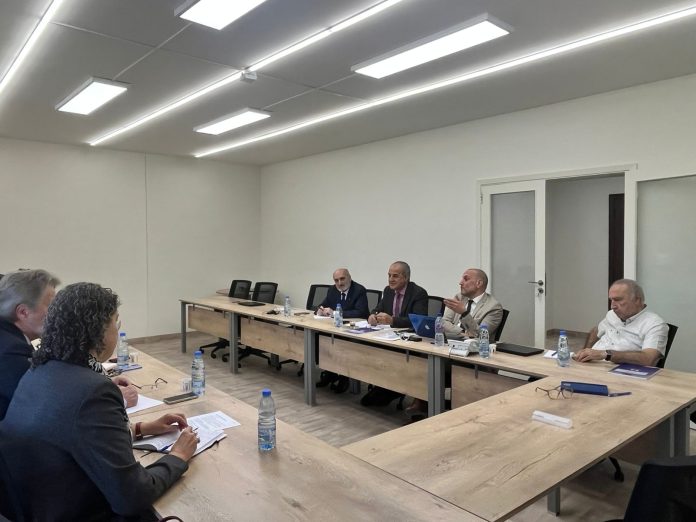The National Human Rights Commission, including the Committee for the Prevention of Torture (NHRC-CPT), received today the European Union Exploratory Election Observation Mission (EU EOM) at its headquarters on Sami El-Solh Boulevard, Beirut, as part of the EU delegation’s official visit to Lebanon from 27 November to 5 December 2025.
The meeting forms part of the EU Mission’s mandate to assess the feasibility of deploying a full European Union Election Observation Mission for the parliamentary elections scheduled for May 2026. The European Union has observed several previous elections in Lebanon, with its missions providing substantive recommendations aimed at enhancing transparency, accountability, and the overall integrity of the electoral process.

Focus of the Discussion
During the consultation, both sides exchanged views on:
- The broader political context and the evolving pre-electoral environment;
- The technical and operational requirements for the conduct of credible, inclusive, and rights-respecting elections;
- The status of implementation of recommendations issued by previous EU Election Observation Missions, including those of 2022;
- Opportunities to strengthen cooperation between the NHRC-CPT, national institutions, and international partners throughout the electoral cycle.
Dr. Fadi Gerges, President of the NHRC-CPT, underscored the crucial importance of safeguarding electoral rights:
“The integrity of the electoral process is a cornerstone of democratic governance. The National Human Rights Commission is committed to supporting all national and international efforts aimed at ensuring that the 2026 parliamentary elections are conducted in full compliance with international human rights standards. Our engagement with the European Union reflects a shared commitment to transparency, accountability, and equal participation for all citizens.”
The NHRC-CPT reaffirmed its readiness to contribute technical expertise, monitoring capacities, and human rights guidance throughout all phases of the upcoming electoral cycle. Both parties agreed to maintain close coordination and dialogue in the lead-up to the elections.
As part of the meeting, Mr. Bassam Al Kantar, Commissioner for International Relations, presented a comprehensive and rights-based concept note outlining the NHRC-CPT’s proposed framework for monitoring the human rights dimensions of the 2026 Lebanese parliamentary elections and identifying concrete avenues for cooperation with the EU Observation Mission. The concept note provides an in-depth rationale for electoral human rights monitoring in a context marked by political fragmentation, socio-economic deterioration, constraints on civic space, and declining public trust in institutions. It underscores Lebanon’s obligations under international human rights law, particularly Article 25 of the ICCPR, and emphasizes that genuinely free and fair elections require respect for a wide range of rights and freedoms—including freedom of expression, peaceful assembly and association, freedom from discrimination and intimidation, equal participation, accessibility for persons with disabilities, and the ability of all citizens to vote freely and secretly.
NHRC-CPT’s institutional mandate, rooted in the Paris Principles, is to monitor, document, and assess human rights conditions throughout all phases of the electoral cycle, including pre-electoral, electoral, and post-electoral periods. The concept note outlines a structured monitoring framework that includes: assessment of the legal and regulatory environment; inclusivity of voter registration; equal access to candidacy; the media environment and protection of journalists; civic freedoms; the policing of rallies and campaign events; gender-sensitive monitoring; conditions in polling stations; accountability for violations; and the effectiveness of judicial and administrative remedies.
The proposed collaboration with the EU Mission includes joint information-sharing, field coordination where appropriate, strengthened monitoring of intimidation and coercion, enhanced attention to online and offline hate speech, protection of journalists, monitoring accessibility for persons with disabilities and other vulnerable groups, and coordination with the Supervisory Commission for Elections, security institutions, civil society, and UN agencies. The concept note further details the NHRC-CPT’s monitoring methodology—anchored in independence, impartiality, accuracy, confidentiality, and the “do no harm” principle—as well as the Commission’s planned deployment of national and regional monitors, mobile teams, media monitoring specialists, and a dedicated hotline for complaints.
Commission’s expected outputs, including monthly updates, a baseline pre-electoral report, an Election Day findings report, and a comprehensive final report in June 2026, along with urgent alerts and public statements when required. He also emphasized the importance of robust coordination, risk mitigation, and adherence to international standards to ensure that Lebanon’s 2026 elections meet global benchmarks for transparency, accountability, and respect for human dignity.
Composition of the Delegations
EU Delegation
- Ms. Yasmina Sioud, Head of Mission, Democracy and Election Observation Division, European External Action Service
- Mr. Fredrik Sterner, Policy Officer for Lebanon, EEAS MENA Division
- Mrs. Delphine Blanchet, Election/Political Expert
- Mr. Manuel Wally, Legal Expert
NHRC-CPT Delegation
- Dr. Fadi Gerges, President
- Mr. Ali Youssef, Treasurer and Commissioner for Complaint Handling
- Mr. Rida Azar, Member, Committee for the Prevention of Torture
- Mr. Bassam Al Kantar, Commissioner for International Relations
- Professor Fadel Daher, Commissioner for Monitoring, Studies, Education, and Development at the Commission
هذه المقالة متاحة أيضًا بـ: العربية (Arabic) Français (French)



